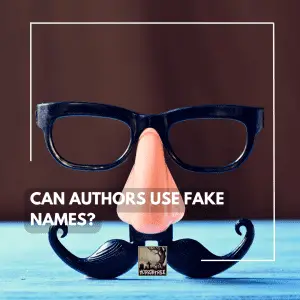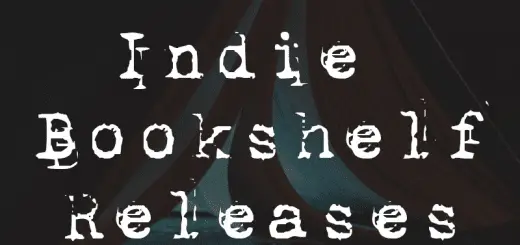Can authors use fake names?
Can authors use fake names?
By Lauren McMenemy
 So you’ve worked through the creative kinks and put your blood sweat and tears into your writing. What happens next? Whether it’s a book, a short story, a poem, or even a screenplay, the chances are good that you want your next step to be publication – to put your hard work out into the world for others to enjoy.
So you’ve worked through the creative kinks and put your blood sweat and tears into your writing. What happens next? Whether it’s a book, a short story, a poem, or even a screenplay, the chances are good that you want your next step to be publication – to put your hard work out into the world for others to enjoy.
And when you release your words into the wild, you are highly likely to be asked what name you’d like to use. This is partly for identification of the author of the work, and partly so people can make a note and think, hey, I really liked that and I want to read more from this writer.
Now comes the big decision: do you want your legal name, or your “real” name, to go with this work? Or do you want to stay away from it for some reason?
If you answered yes to the latter, there is good news: it is perfectly legal to assume a different identity when publishing.
Why would an author use a fake name?
There are many reasons why authors might choose not to publish using their real name; the identity they use instead is known as a pen name – or a pseudonym, an alias, or a nom de plume. These are just different ways to say it’s not the name you’d find in the good ol’ fashioned phone book.
But why would a writer choose to use a pen name?
Some aren’t in it for the fame and glory
Believe it or not, some people want to keep their identity to themselves so they can live a normal life. In this day and age of digital footprints, it can pay to keep your writing away from, say, your work or family lives. A pseudonym means you can’t be tracked down on social media and tagged in bad reviews!
Some want to separate aspects of their lives
Like with the above, some people want to maintain strict separation between aspects of their lives. It might be that they work in a particularly strict or security-heavy industry and write books after hours; or maybe they write works that are not suitable for children and don’t want their kids (or parents!) to know.
Some are entering new worlds and seeking a new brand
You’ll often find writers who are switching genres, styles or formats will choose a new name for those new works. It can be similar to your previous publishing name – such as when literary writer Ian Banks wrote science fiction as Ian M. Banks – or it could be something completely new, as when Isaac Asimov renamed himself Paul French to publish juvenile science fiction books. As writers, our names are our brands.
Some want to distinguish themselves
Imagine you were born Stephen King and you want to start publishing romance novels? You would likely change your name to avoid being overshadowed by the master himself, as well as to make it much easier to find your work.
Some want to avoid gender stereotyping
Especially in the fields of speculative fiction, gender bias can be strong. You’ll find many female-identifying authors opting for their initials rather than their given first names to help make them that little bit more vague.
Some want to protect their true identity
Or, there can be some truly serious reasons to keep a real name secret. Think of those who are writing tell-alls or whistleblowing tales, or who might fear for their life if this work is published under their legal identity. In some cultures, being a writer can be lethal.
Have any famous authors used a pen name?
If you opt to publish under a pseudonym, you’ll find yourself in good company – plenty of famous and successful authors have used a fake name or a pen name for their works.
How’s this for a list of writers who used fake names?
- Mark Twain, also known as Samuel Clemens
- Lee Child, also known as James D. Grant
- Mary Westmacott, also known as Agatha Christie
- Lemony Snicket, also known as Daniel Handler
- J.D. Robb, also known as Nora Roberts
- E.L. James, also known as Erika Leonard
- And – Richard Bachman, also known as Stephen King
What happens if I use a pseudonym for my writing?
It’s important to remember that choosing a new name to write under will stick, so choose something you won’t want to change next time you aim to publish in the same area. Pick a name that resonates with your target audience and fits the vibe of your genre, and importantly pick something that you can register on social media and buy as a URL – remember, it’s all branding.
But please, please don’t go overboard: don’t create a fake identity to take advantage of marginalised communities you don’t belong to; don’t make claims you can’t substantiate; and never claim credentials you don’t have. A pen name is unlikely to protect you completely from defamation claims, and it can have legal repercussions. Seek appropriate advice before jumping in head-first.
Not sure what to choose? There are actually pen name generators out there on the web – because of course there is! Try this one from Reedsy, the writer’s market, for starters.
So what do you think? Would you ever publish under a pen name, or do you want to keep the glory for yourself? Let us know in the comments below ⬇️
- About the Author
- Latest Posts
Lauren McMenemy wears many hats: Editor-in-Chief at Trembling With Fear for horrortree.com; PR and marketing for the British Fantasy Society; founder of the Society of Ink Slingers; curator of the Writing the Occult virtual events; writers hour host at London Writers Salon. With 25+ years as a professional writer across journalism, marketing, and communications, Lauren also works as a coach and mentor to writers looking to achieve goals, get accountability, or get support with their marketing efforts. She writes gothic and folk horror stories for her own amusement, and is currently working on a novel set in the world of the Victorian occult. You’ll find Lauren haunting south London, where she lives with her Doctor Who-obsessed husband, the ghost of their aged black house rabbit, and the entity that lives in the walls.









